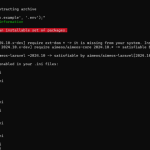Limited Time Offer!
For Less Than the Cost of a Starbucks Coffee, Access All DevOpsSchool Videos on YouTube Unlimitedly.
Master DevOps, SRE, DevSecOps Skills!
DevSecOps is built upon a set of core principles that guide its implementation and integration of security practices into the DevOps approach. These principles ensure that security is not an afterthought but a proactive and continuous consideration throughout the software development lifecycle. Here are the key principles of DevSecOps:
- Shift Left: The “Shift Left” principle involves moving security practices earlier in the software development lifecycle. Instead of addressing security concerns only during the deployment phase, DevSecOps emphasizes identifying and addressing security issues during the design and development stages. This proactive approach helps mitigate vulnerabilities and security risks at their root, reducing the cost and effort of addressing them later.
- Automation: Automation is a foundational principle of DevSecOps. Automated security testing, code analysis, vulnerability assessments, and compliance checks are integrated into the continuous integration and continuous deployment (CI/CD) pipeline. Automation ensures that security assessments are conducted consistently, efficiently, and without the need for manual intervention, improving the accuracy of security measures.
- Continuous Monitoring: DevSecOps encourages continuous monitoring of applications and environments in real-time. This involves using tools to monitor for security threats, unusual activities, and vulnerabilities. Continuous monitoring ensures that security teams can detect and respond to emerging threats promptly, reducing the risk of security breaches.
- Collaboration: Collaboration is a fundamental principle of DevSecOps. Development, operations, and security teams work together to ensure that security practices are integrated seamlessly into the development process. This shared responsibility fosters effective communication, understanding of security requirements, and a united effort to address security challenges.
- Security as Code: “Security as Code” involves treating security policies, configurations, and best practices as code artifacts. This means that security measures are managed and versioned in the same way as application code. By storing security-related information in version control systems, organizations ensure consistency and transparency in security practices across different stages and environments.
- Culture and Education: DevSecOps promotes a culture of security awareness and education. It involves fostering a mindset where security is everyone’s responsibility, not just that of the security team. Organizations invest in training and education to empower developers, operations staff, and other stakeholders with the knowledge and skills needed to implement security practices effectively.
- Short Feedback Loops: DevSecOps emphasizes short feedback loops to address security issues promptly. Security feedback is integrated into the development process as soon as vulnerabilities are identified. This enables development teams to remediate issues quickly and prevent them from accumulating or propagating to later stages of development.
- Risk Assessment and Prioritization: DevSecOps promotes a risk-based approach to security. Security teams work closely with development and operations to assess and prioritize security risks. By focusing on the most critical risks, organizations can allocate resources effectively and ensure that security efforts align with business objectives.
- Continuous Improvement: Continuous improvement is a core DevSecOps principle. Teams regularly evaluate their security practices, tools, and processes. They identify areas for enhancement and implement changes iteratively to adapt to evolving threats and challenges, ensuring that security measures remain effective over time.
By adhering to these principles, organizations can successfully implement DevSecOps practices that integrate security seamlessly into the development process, resulting in more secure and resilient software applications.



